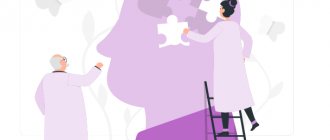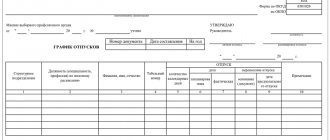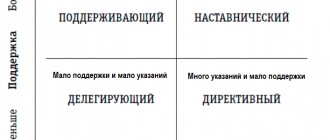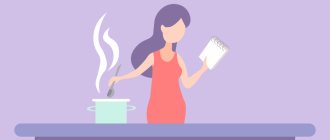Concentration of attention allows a person to direct thoughts in the right direction. And this significantly increases the effectiveness of any endeavor, including studying. Constantly being distracted or considering the learning process to be something boring or difficult, an individual, on the contrary, reduces his productivity. This article will give simple psychological recommendations on how to focus on your studies and not be distracted by trifles.
- Special place or atmosphere
- He who gets up early studies well
- Take breaks right
- Don't adapt to your mood
A little motivation
[adsense1] Many people don’t need all the past reasoning at all. For them, the main difficulty is lack of interest in learning and boredom.
But what can I say here? A quote from artist Chuck Close sums it all up: “Inspiration is for amateurs, the rest of us just show up and work.” A person never does only what he loves; there are always problems and routine.
You just need to sit down and start, without any excuses. Get off your butt and get used to breaking your “I don’t want” every day. This is what life is all about, this is the kind of behavior that makes you respect yourself . Don't be lazy, start developing your character right now.
Special place or atmosphere
An individual who wants to study productively must ensure that a special workplace is allocated for these purposes. Arrange it based on your own preferences.
Adjust the light, it should not be too bright or dim, and also make sure that you always have the things you need for studying at hand - a pen or pencil, an eraser, a ruler, blank sheets of paper. And most importantly, define this place as something created exclusively for study in your brain.
If living conditions do not allow you to allocate a separate place for training, then create a special “learning” atmosphere that promotes concentration on the goal. Close the curtains, turn off your computer and mobile phone. Ask your family not to come into your room or make noise at this time.
Meditate
Although science has proven the benefits of meditation, people are still afraid of this practice or even consider it stupid. In addition to reducing stress and improving physiological performance, meditation helps you gain more control over your emotions, which makes you less likely to give in to distracting impulses. This means that you will focus on the task longer, and procrastinate less, because procrastination is more anxiety and fear than laziness.
To improve your focus, try this meditation: Direct your full attention to one object or sensation (such as your breath) for two minutes and return it whenever your mind wanders. You will understand how difficult it is to concentrate on one object: the brain will endlessly generate random thoughts. But this is the point of the practice: to notice that you are distracted and gently return your attention back.
Spend at least two minutes a day on this and you will become better in control of your mind at work and at home.
Lead a healthy lifestyle and relax
Are you programming on a binge and forgetting about time? Study seriously the question of when and how to rest. Attention and concentration rapidly decrease with a lack of sleep and rest.
Your brain functions better when your body gets the nutrition it needs. Make sure you eat on time. Also, remember to drink enough water daily to avoid dehydration. Physical activity will also help you cope with everyday tasks. Remember that you are productive when you are physically healthy.
Monitor how you spend your time
Distraction can come in many forms. It's not always about wasting time on Facebook, playing games on your phone, or pictures of kittens, but the point is always the same. Some tasks are less important than others. And if you spend more time on them than you should, they should also be considered distractions. If you can't figure out where all your time is being spent, use time counters. Such as RescueTime. It will show you which websites you visited, which apps you used, and how much time you wasted on each one.
Don't interfere with the emotional reaction, but control the situation
The feeling of overload gives rise to acute emotional reactions: irritation, anger, anxiety. And they reduce productivity. We need to break this cycle, says Susan David.
To regain willpower and control and not feel "at the mercy of what's going on in the world and in your office," she suggests articulating your feelings and then asking yourself a few questions. For example: “Obviously, I’m angry, but who’s in charge here—anger or me, the person?”
Fernandez agrees with this approach: “You need to acknowledge your feelings, their validity and significance, but not allow them to take over.”
Synchronize your work with your biorhythms
In the morning you are fresh and alert - it’s time to program. The brain was rested, the reserves of willpower to resist temptations were replenished. In addition, there is a greater chance of being in silence and solitude. Or work in the evening when everyone is leaving. Partial fatigue sometimes also helps: there is no extra strength or desire to be distracted. Plus, this period is considered favorable for creative tasks.
Choose any other time and don't be afraid to change your schedule to schedule programming for times when you feel effective.
Download the meditation app
The ability to meditate is one of the useful and powerful skills that will help you change your own life. These days there are a lot of programs that make meditation accessible, easy and understandable. In such services you can choose the duration of meditation and the topic. You can meditate for short periods of time while you are waiting for someone to meet or riding on public transport. These unique guides will help you not to be afraid of the exercises and understand their effectiveness.
Set clear goals
Seek clarity about what you are trying to achieve. For example, “create a function that allows the user to change their password” sounds vague. You will waste time trying to decide where to start and what to do. Instead, say, "My goal is to create password change form fields on a user's profile page and connect those fields to a function that calls an internal API that I haven't written yet." Such specificity will easily immerse you in the matter.
When planning your tasks for the day, break down your tasks into subtasks so you can see your progress. Let's say test a new API by calling one simple function. Even if you want to finish the entire interface, you still need a starting point.
How to stop getting distracted
The quality of work of any specialist depends heavily on attention.
Dozens of ideas remain elusive and unrealized simply because a person did not focus on them and was constantly distracted. Think about how often you complete a task, immersing yourself 100% in it, without wasting energy on extraneous matters. Let's say you are writing or reading something. Your smartphone notifies you every minute about messages, likes, and comments. This is a real Pandora's box, which makes you waste a lot of time on empty actions and useless surfing the Internet.
In the digital age, the only radical way to regain your own freedom and focus is to go offline and be offline against your desires. This is not easy to do, especially if you work or study using the Internet. But there are certain tools that will help you stop being distracted and reduce the number of “irritating” factors.
How can a teenager learn better and more effectively?
Encourage your teenager to find a place where he or she will be comfortable studying.
Explain to your teenager that studying homework in apartment rooms is not very effective. For the reason that here the teenager will be distracted by third-party things. Including messengers and social networks.
Instead, the teenager needs to find a more effective place to study homework. For example, a library is ideal for this. Or any other similar place. The main thing is that there are comfortable chairs in the study room. And also minimal access to the Internet. So that a teenager has the opportunity to study without looking there. And feel great while learning.
You can study in any place other than the library. It is important that the place is secluded and quiet. And so that the teenager feels comfortable in it.
Before starting homework, a teenager needs to prepare for it.
In order not to be distracted by searching for books, notebooks and other things, a teenager must prepare to do his homework. Let him take notebooks, pens, books and other items that will be useful to him while doing homework. Let him also not forget about textbooks and additional materials. It is important that the teenager has them at hand while performing them. If something is not nearby, the teenager will need to get up and look for this or that object. Which will be very inconvenient, will distract him and will take a lot of time.
A teenager needs to cooperate with someone in order to study together
So that the teenager always has the motivation to do homework, let him find someone who also needs it. He needs to get close to another teenager who has good grades in school. And he also wants to do his homework together.
Studying homework together is very convenient. Firstly, teenagers will be able to support each other and share how to do homework in a certain subject. Secondly, the teenager will have the opportunity to always remain motivated to complete tasks. If one day he wants to skip doing his homework, his partner will correct him. And he will make it so that you will have to do it.
Recommend that your teenager choose a person who is smarter than him as a study buddy. In this case, he will be drawn to him. As a result, he himself will become a little smarter. And in general, explain to the teenager that he needs to communicate with people who are more advanced and developed in some ways. In order to become more and more perfect every day.
Encourage your teen to have healthy snacks regularly
When snacking, a teenager should consume only healthy foods. It is worth giving up energy drinks and coffee. These are not very healthy snack foods.
Encourage your teen to consume granola as well as water. Fruits are also suitable for snacking. This type of food contains many beneficial substances. Recommend that your teenager consume them without fail.
Encourage your teen to take short breaks
Encourage your teen to always take breaks during long periods of studying at home. Let him rest for ten minutes every forty-five minutes. After rest, you must return to doing your homework. And actively work on it. At the same time, you need to limit the teenager's time for a break. Under no circumstances should he rest for more than twenty minutes. This is too long for a break.
Recommend that your teenager plan what time and how long he will rest. It is very important to do this. In order not to be distracted from your main studies. And don’t stretch out your homework for the whole day. Explain to your teenager that taking short breaks between stages of study is important. In order to effectively master the material provided. And give your brain a chance to rest.
Encourage your teen to motivate himself.
Explain to your teenager that he does homework for a reason. And to gain good knowledge. As a result, get an excellent grade for the test/semester/year. If a teenager has good knowledge, he will receive an excellent certificate. Ideally will pass the Unified State Exam in the subject. And he will enter the university of his dreams. If a teenager does not gain knowledge, he will not pass the exams. Will not go to university. As a result, he will be drafted into the army.
Motivation needs to be different in each specific case. The most important thing is that it works. And it was effective.
Turn off notifications
Stop the dissonance of notifications about new spam emails, new tags in photos and likes on Instagram. Leave only important notifications - messages in the work messenger and calls.
Check the rest in your free time when you complete the task. To change the settings, rummage through your laptop and smartphone, look at the settings for social networks and email accounts. Life will become quieter, calmer and more measured.
Check from time to time only those groups, channels and dialogues that are important to your family and professional life.
Take breaks right
Knowing how to rest between the process of acquiring knowledge is an art. If you take breaks too short, your eyes and brain won't have time to rest, leading to an increased risk of fatigue. Breaks extended over a couple of hours will also not bring anything good, because it will be so difficult to start studying.
Therefore, the ideal option is breaks at intervals of 15-20 minutes every hour. At this time, drink tea with sweet candy, go outside or onto the balcony and breathe some fresh air, do exercises for your eyes and hands.
How to recover from academic burnout
Remember that academic burnout usually takes months or years to develop, so full recovery will also take time and effort. If the situation has worsened and academic burnout has become a constant part of your life, here are some things you can do:
Ask for help
You may need professional help—talk to a psychologist, educational counselor, mentor, or other professional who can help you overcome burnout. You can also enlist the help of friends, family and teachers.
Recognize the symptoms and don't ignore them
Remember the key symptoms of academic burnout and don't ignore the signals from your mind and body. Burnout will only get worse if you keep moving forward without getting the proper help.
Manage stress and make important life changes
Take time for yourself to relax and reduce stress. Practice conscious breathing, eat healthy, communicate more. Try also taking meditation breaks throughout the day. Change your schedule to create a better balance between different aspects of your life.
Lifehack #3: Take notes
When you take notes, you help information get into long-term memory. Therefore, in order to quickly learn new things, you need to take notes.
How to take notes?
For note-taking, the Cornell method is best suited. Take an A4 sheet and divide it:
- Write the name and date at the top
- Draw a vertical line: make the left column narrow, the right part 2 times wider.
- Separate the bottom block (5-6 lines) with a horizontal line.
So you have 3 blocks:
- Right, where you take notes on key points during the lecture
- The left one, which you fill in when you reread the right block. Here you write down the main points, the most important from the right block.
- The lower one, where you will write down brief conclusions from the columns above within 24 hours after the lecture.
To take notes, you can use markers, gel pens, diagrams, and drawings.
Spend time in nature
When focus weakens, it's time to step away from the computer. Remember, evolution did not prepare us to sit for hours in front of a computer screen and write code. An experiment by Mark Berman showed that students perform better on intellectual tasks after walking in a park rather than on noisy city streets.
You're lucky if your office is near a park. Is there only asphalt around? Don't worry, this will work even when looking at nature photos. Imagine then what miracles plants and flowers can do in the workplace.
When you only have the strength to open Twitter, it’s better to watch National Geographic.
Remove apps
Radical method. Determine which apps on your smartphone or tablet are the most distracting. For example, you constantly think about Instagram. Remove it while working. Now you can check this social network only through a browser, where the functionality is severely limited. This method will definitely reduce the number of constant views of the feed. Once you complete the work task, install Instagram again.
Rely on your values
Once you focus, you can decide where to focus your attention. Susan David says that feeling in control creates an emphasis on your values. “When you're overwhelmed, it feels like your willpower and freedom of choice have been taken away,” she says. “But remember: even in such a situation, you decide for yourself who you want to be.” If one of your core values is collaboration, focus on it. What can you do to make people feel like they are part of a team?”
And decide how your inattention affects your self-esteem: “If fairness is important to you, then think about whether absent-mindedness contributes to this? If you spend three hours a day on Facebook, is that fair to your team or family?”
Set your priorities
It's not just your phone that wants to steal some of your time. Remember the employee who came up every 20 minutes with stupid requests. Constantly ask yourself: is this person's time a higher priority than my responsibilities? Are you giving your best? What do you study while you're standing in line or waiting for the bus?
Stop social networks! Reboot
Getting rid of Internet addiction is not easy, but with the help of your parents it is possible. If adults somehow reward a child for time spent away from electronic devices, this will be a great incentive to put the gadget aside. The teenager himself will appreciate how much free time he has and will appreciate the beauty of live communication. You need to learn to “overload.” There are situations when a solution to even a simple problem cannot be found. The student “goes in circles” for the hundredth time, but again ends up with the wrong answer. Psychology experts advise putting everything aside for 5 minutes, closing your eyes, and thinking about something pleasant. You can get up, walk or stretch, drink water, eat a piece of chocolate. This will help you get out of the vicious circle of your mistakes and start thinking in a new way. If a student is faced with tasks of varying complexity, he should start with the most difficult one. Having mastered the most difficult work, it will be easier to complete the rest.
Train your brain to focus
You can put a lot of effort into eliminating distractions. But your brain can still be your worst enemy. So if your brain jumps from thought to thought while working, you need to learn to control it. The next tip may seem stupid. But try it, maybe it will help. Place the elastic band around your wrist. Every time distracting thoughts arise, hit yourself with this rubber band. Let your brain develop a habit that you cannot be distracted.
Put your phone away
Put your phone in Do Not Disturb mode and put it out of sight. No vibration. Left your phone on the table? In vain, even silent notifications will distract you with lights and flashing.
Every new message on a social network causes a surge of dopamine. This hormone motivates you and awakens your desires. That's why it's so nice and exciting to receive notifications. The hunter-gatherer instinct kicks in.
But distractions reduce productivity by shifting attention, and often leave you stuck in your feed for an hour or two. The concept of “variable reward” is what makes social media channels so exciting. Finding the next cool post is like gambling because you don't know when you'll find something valuable next. These random rewards make you more addicted than goodies with a fixed frequency. If every post in your Facebook feed was engaging, it would be easier for you to stop because the excitement would fade faster.
What should a teenager not do while preparing for school?
Advise your teen not to panic.
Many teenagers take their studies too seriously. As a result, they panic. And during this they make many serious mistakes.
Explain to your teenager that they need to take their studies more simply. During it, the teenager must focus on his work. And do it as calmly as possible. In order to avoid mistakes. And get the job done faster.
While studying, you must turn off all electronic devices.
It is advisable that the teenager's computer be turned off during school. Or, at a minimum, the teenager should quit all social networks. So that pop-up messages on the screen do not distract him from his studies. It is impossible to concentrate on two things (doing work and correspondence). Therefore, you need to focus on one thing.
The same thing needs to be done with the phone. Recommend that your teenager turn off Wi-Fi while studying. So that instant messengers and messages from different social networks do not distract him. And he had the opportunity to immerse himself as deeply as possible in this or that matter.
Can't listen to music
It is not always possible to listen to music while doing homework. This is only acceptable if the teenager does not need to focus and remember information. That is, when he rewrites notes from another notebook, draws, and so on.
However, if a teenager needs to focus and receive specific information, this should not be done. Music will only distract from memorization. And it will not bring the desired effect to the teenager.
A teenager should not lose focus.
Encourage your teenager to be focused on completing homework. Of course, sometimes he will turn his attention to third-party matters and objects. Because the topic he is studying may turn out to be boring. Or uninteresting to him. However, in these situations the teenager will need to consciously bring himself back to the topic. And continue to do your homework. It is very important to do this. Because only in this case can you achieve good results and knowledge.
You can't lose faith in yourself
Encourage your teen to always maintain a good mood. He must be positively disposed to all types of work at school. He must believe that he will prepare well for the test. That will give her a good grade. And, most importantly, he will receive all the necessary knowledge. In order to effectively study in the chosen direction.
Create a work and rest schedule
Many of us have calendars and planners that mark work meetings, organizational meetings, and other office life events. This helps not to be late, set goals and stay on top of things for the week or month.
But what about planning a vacation? Introduce into your routine things that are necessary for relaxation and calm: meditation, meeting with friends, breaks from work, reading, exercise.
If necessary, make a schedule for visiting social networks and news portals.
Why does attention wander during learning?
Scientists have identified several main reasons that prevent us from concentrating on our studies. Firstly, the loads are too high. Trying to cover everything at once, we overwhelm ourselves with books, webinars, online courses, and trainings. Because of this, problems arise with sleep, and its lack inevitably leads to absent-mindedness and rapid fatigue.
The second reason is low motivation or its absence. If you are bored in class, then you will try to entertain yourself: look out the window, check social networks, draw in a notebook, or simply have your head in the clouds, dreaming, for example, of a vacation by the sea.
Concentration decreases if you are rarely outdoors and lead a passive lifestyle, ignoring sports training and eating the “wrong” foods. Academic productivity is also influenced by your environment. Family quarrels, demands from relatives to take out the trash, or simply loud music in the next room force you to be distracted from studying the material.











